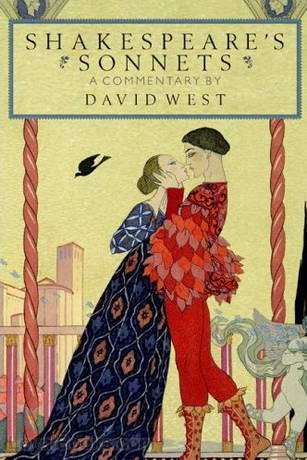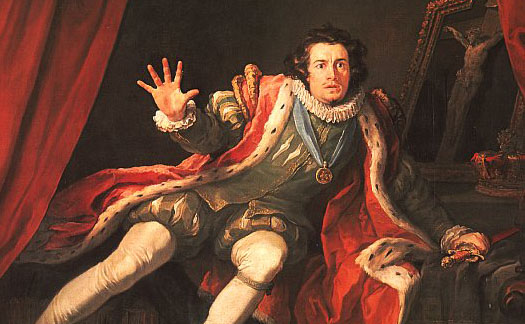I am going to tell you something shocking. You ready for
it?...I am not a poetry person. I am just like my students. When I had to read
poetry for school, I always dreaded it. It wasn’t because I didn’t understand
it or it is too difficult to figure out. No, it was because I preferred to get
lost in a story and become invested in characters. Poems are typically short
and to the point and overly dramatic. I preferred and still prefer to get lost
in a story instead.
It wasn’t
until college that I earned a deeper appreciation for poetry. When you spend
several hours discussing the same twenty lines, you can’t help but appreciate
the effort that
went into creating those twenty lines. BUT, you can’t make me
determine the scansion (scansion is the rhythm of a poem) of a poem ever again.
That is the most vile thing you can make an English major do. It is like
forcing the words into a math problem and they just won't fit and the thought of doing that again makes
my stomach squirm.
I love
Shakespeare, but I dislike poetry. So you can imagine my conflicted feelings
when it came time read Shakespeare’s sonnets. What is a sonnet you may ask?
According to poetryarchive.org, “an English sonnet is a poem of fourteen lines,
usually in iambic pentameter that has one of two regular rhyme schemes.” The
form of a sonnet does not just apply to Shakespeare; Petrarch, Dante, and John
Donne used them too. Sonnets, at least Shakespeare’s, mainly focus on love,
beauty, and mortality.
I’ll be honest
with you. I didn’t particularly enjoy reading the sonnets. I appreciate them
from a literary standpoint, but, man, are they boring to read, especially when
you read all 154 at once. The first 126 sonnets are addressed to a young man.
It is unclear who this young man is; whether he is just a friend or a secret
lover. Some claim that the young man could be Shakespeare’s rival Christopher
Marlowe. One of Shakespeare’s most famous
sonnets, Sonnet 18, contains the famous line “shall I compare thee to a summer day.” Sounds romantic, right? Like it could be written to a pretty lady? Wrong. This sonnet was written towards the young man. Some of these poems sound extremely romantic while others seem to be yielding advice. Deciphering Shakespeare’s sonnets is like figuring out who Taylor Swift is singing about. I’m not bashing Taylor Swift here. I’m actually defending her. Artists have been writing, singing, and painting about the important people in their life for a long time. Taylor Swift just gets a lot of crap for it because she is a successful woman in the time of social media.
sonnets, Sonnet 18, contains the famous line “shall I compare thee to a summer day.” Sounds romantic, right? Like it could be written to a pretty lady? Wrong. This sonnet was written towards the young man. Some of these poems sound extremely romantic while others seem to be yielding advice. Deciphering Shakespeare’s sonnets is like figuring out who Taylor Swift is singing about. I’m not bashing Taylor Swift here. I’m actually defending her. Artists have been writing, singing, and painting about the important people in their life for a long time. Taylor Swift just gets a lot of crap for it because she is a successful woman in the time of social media.
The second set
of sonnets, 127-152, is written to a “Dark Lady” mistress. These poems focus on
sexual love in which there are mixed emotions. Shakespeare discusses how this
woman is irresistible and his dream woman, but she also disgusts him. I have an
issue with this because it implies that if a woman is sexual than she is also
dirty. It is a double standard because the opposite is never thought of in
relation to men. Granted, these poems were written in the 1500s where women did
not have as many rights, but these double standards are still evident today. It’s
sad when you find flaws in one of your favorite authors, but even Shakespeare
is not perfect.
The last
two sonnets (153-154) are translations of Greek epigrams; another piece of
evidence that Shakespeare did not originate many of his stories.
Other Thoughts
- Paris quotes a sonnet as an insult/threat to Rory. I love
literary insults!!! Lorelai also quizzes Rory on facts about the Sonnets for
her Shakespeare exam. Poor Rory, I’m sure this would be one hell of an exam
(not like she had a chance to take it).
- The sonnets have a reputation for being quite romantic.
However, I find them depressing. Many of them have sad undertones of darkness.
The “Dark Mistress” for instance is seen as a villain, beauty is seen as
fading, and time is an enemy of love. Not the kind of stuff I’d want read at my
wedding.
Next Time: We will get a break from Shakespeare. I find it best if Shakespeare is read in moderation. I am currently reading selections from several authors from the same time period: Christopher Marlowe, Francis Bacon, Ben Jonson, and John Webster. I am revisiting my old Norton Anthology of English Literature for this and I AM LOVING IT!
Pictures
Book Cover:http://www.loyalbooks.com/image/detail/Shakespeare-s-Sonnets.jpg
Book Cover 2: https://i.pinimg.com/736x/ca/64/77/ca6477537a23337d5bb3eb93652fad9c--shakespeare-sonnets-midcentury-books.jpg
Book Cover 2: https://i.pinimg.com/736x/ca/64/77/ca6477537a23337d5bb3eb93652fad9c--shakespeare-sonnets-midcentury-books.jpg





